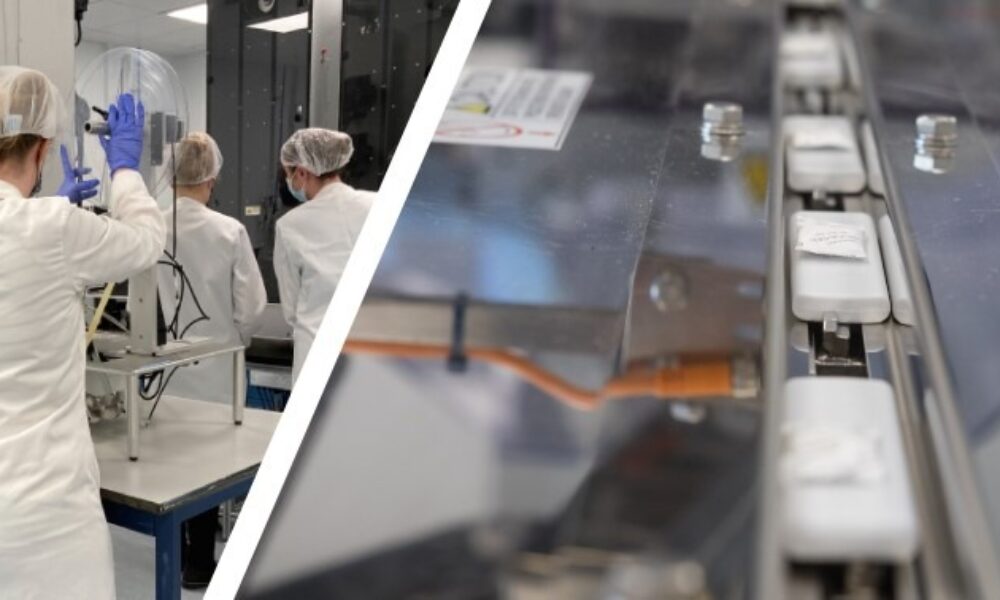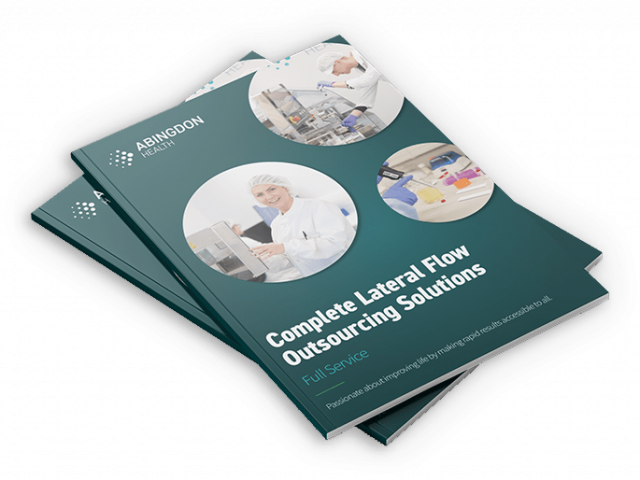Own-Brand Diagnostics Products: Navigating Challenges For Successful Launch

Rise In PLM Diagnostics
But Is It Right for Your Brand?
Key PLM Considerations
How Can We Help?
In this blog Abingdon Health’s Channel Sales Manager, Nicole Miller, explores the rise in own-brand Lateral Flow Assays (LFAs) for major retailers, including the challenges they face in an ever-evolving regulatory landscape and global supply concerns.
This article was originally published on 6th December 2023 on the Abingdon Simply Test website. For more information about our self-test range of rapid diagnostic tests, please visit the link below or click here to download our brochure.
Rise In PLM Diagnostics
In the post-COVID-19 world, we have seen a shift in consumer adoption of rapid self-tests, or LFAs, with most major UK retailers stocking a range of at-home health and wellbeing rapid diagnostic tests. The emergence of these tests empowers people to take control of their health ensuring they have cost effective access to monitoring areas like vitamin d and iron deficiency, stomach ulcers, bowel health, menopause, and overactive thyroid, to name a few. And with the strain on healthcare systems around the world increasing, and routine appointments harder to access, we see only an increase in demand taking place.
But Is It Right for Your Brand?
Putting your brand name on a product for retail sale is a big commitment and comes with significant responsibility. Private Label Manufacturing (PLM) should be given careful consideration, as your brand is one of your biggest assets.
However, the benefits of being able to offer your own-brand alternative are considerable for two main reasons:
New Innovation:
Firstly, consumers need to know this rapid diagnostic technology exists for its various applications; lateral flow tests aren’t just about testing for COVID-19. Retail branding and access to online and offline (O+O) marketing to a broad, existing audience means you have the strongest foundation to drive consumer awareness. Consumer appetite grows when a trusted brand brings them something new, and the possibility of exclusivity – even if just for a short period – brings additional commercial opportunity.
But, consumers can be sceptical with new innovation; therefore, having your own-branded retail version of a product via PLM, not only educates but gives the consumer confidence that the technology is accurate and reliable. Your organisation gets to decide what key information goes on the box alongside your brand name, in essence.
Established Product Lines:
Where the technology has existed for enough time for consumers to have started adopting it, this allows you to enter the market knowing what products work and offering the consumer a cost-effective alternative for established product lines.
Whilst the benefits can be considerable in driving new footfall, revenue and margin, if the technology is new to your brand, you want to ensure you avoid the pitfalls that come with private labelling diagnostic devices…
Key PLM Considerations
Here are a few key points you need to consider when thinking about own-branded LFT’s:
Regulatory & Technical Support:
In the in vitro diagnostics realm, we are working through significant regulatory changes including the transition from IVDD to IVDR (the new, highly stringent regulatory classification system and requirements) as well as the requirement for UKCA marking. It is therefore critical to work with reputable suppliers that can advise you of the right products to private label that will remain compliant with the changing regulations to ensure you don’t have product delisted.
Once you are sure of this, then there is the technical detail to work through to ensure the product has all the requisite certificates (e.g. CE, MHRA) and that the technical file supports the quality and accuracy claims of the device.
Quality:
Quality brings peace of mind. Knowing your brand is in the hands of experts and being manufactured to the highest quality, means that you are putting your name on the best possible product for your customers, thereby mitigating potential complaints and cause for concern to maximise your market opportunity. It is vitally important to work with partners who have stringent Quality Management Systems (QMS) in place.
Artwork & Marketing:
Once you have made the decision to private label and it’s confirmed that the product meets regulatory and quality standards, you are now ready to design the artwork.
You may have your own design team and brand book to follow – this is a great start in designing the product, but do they know how far they can take the re-design of the artwork, IFU’s (instructions for use) and contents and legal manufacturer information? This varies by product and the classification of the device. You need to ensure you are getting the best consumer-focused product you can, whilst ensuring regulatory compliance is upheld. So, partnering with suppliers that understand all this adds an extra layer of value to your brand and efficiency to the launch process.
And now you are ready to market. Some retailers have their own asset delivery team which is, again, very helpful. But are they capturing all the key unique touch points of the product? Do they have the resource to create videos? Perhaps tailor frequently asked questions for customer support? Or maybe some quirky strap lines? At Abingdon Health, we work with our retail partners to create bespoke assets or release our own for use under their own branding.
Supply:
Lastly, routine supply of the product is a key consideration. You’ve gone to all the effort of launching a new private labelled product; the last thing you want is for your warehouse to be out of stock. Supply chain is something that we often see being overlooked. It is critical for uninterrupted inventory of the product(s), to consumers that your supply chain is robust. This requires careful investigation into factory capacity, internal resource management, and material supplier reliability, for example. Is your chosen partner a lateral flow development CDMO specialist?
How Can We Help?
Abingdon Health are experts in the field of lateral flow test development, with a track record of over 15 years developing and manufacturing rapid tests under ISO9001 (quality) and ISO13485 (medical device) certification standards, as GMP compliant facilities, who are focused on building long-term strategic partnerships. Our fully integrated team of experts covering Regulatory, Quality, Technical, Manufacturing, Supply Chain, Warehousing and Sales & Marketing mean we have every base covered for your PLM strategy. To discuss how we can help, please get in touch via [email protected].

